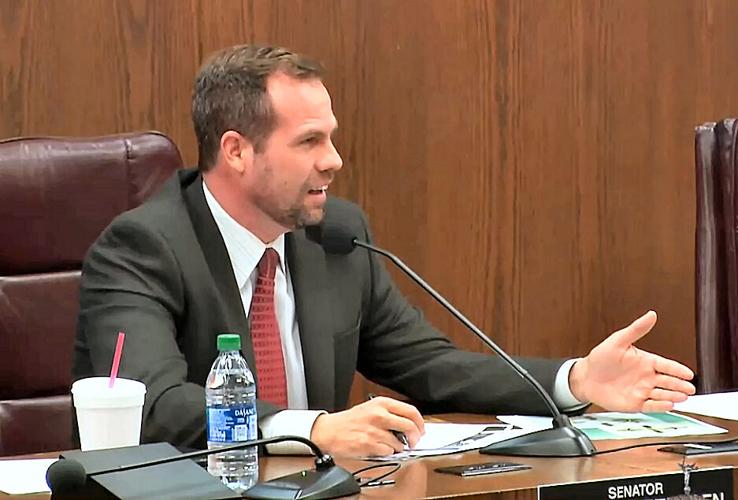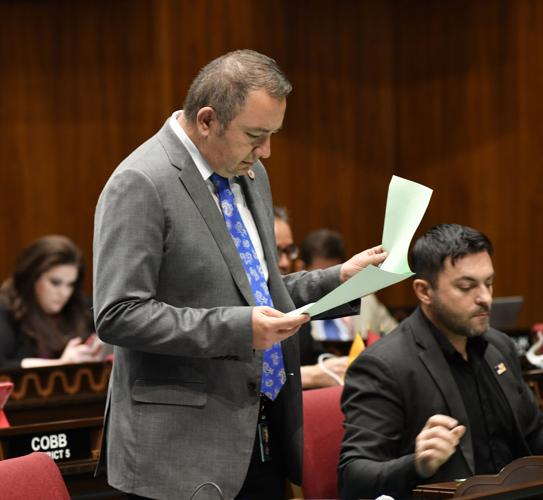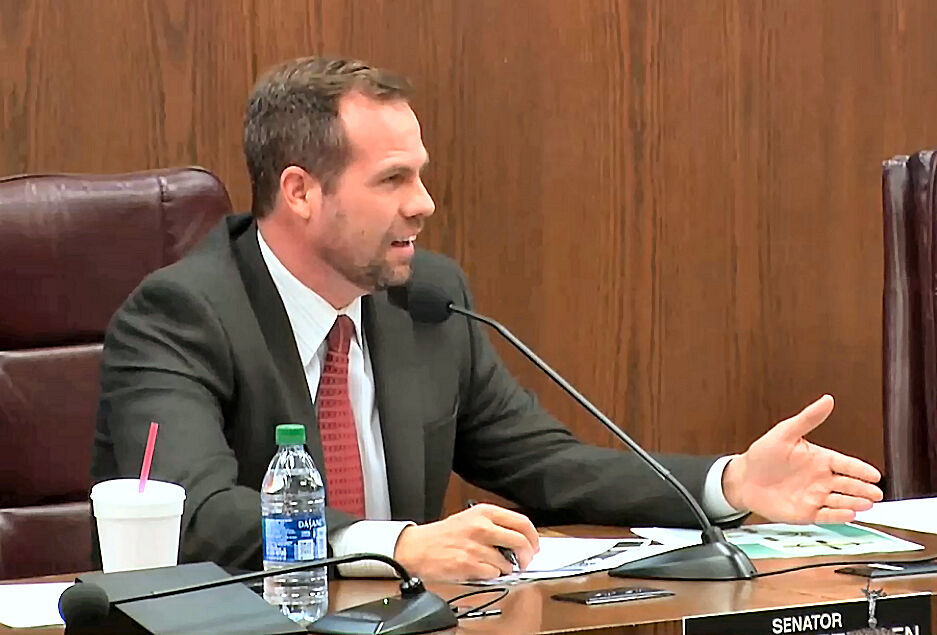PHOENIX — The Legislature’s top two leaders are trying to dodge answering questions in court about their backing of legislation making it more difficult to register to vote.
The Republicans, Senate President Warren Petersen and House Speaker Ben Toma, are asking the 9th Circuit Court of Appeals to issue an emergency order blocking a judge’s ruling that they must answer questions from challengers who filed suit against a pair of 2022 laws and also produce documents. They contend it runs afoul of legislative privilege.
The success or failure of constitutional challenges to laws often turns on whether they were enacted “with discriminatory intent.’’ In this case, the groups seeking to void the laws — including the U.S. Department of Justice — contend the changes “amount to intentional race discrimination in voting.’’
U.S. District Court Judge Susan Bolton, who will preside over the trial set to begin Nov. 6, said the challengers’ need to question Petersen and Toma trumps any claim of legislative privilege.
She said the lawmakers, in intervening in the case and responding to the lawsuit, denied the allegations that the voting laws are intentionally discriminatory. That opens the door to the challengers questioning them, Bolton said.
“The Arizona Legislature’s intent or purpose in enacting the challenged laws is thus unquestionably relevant,’’ the judge said.
Discrimination alleged
The laws, signed by Republican then-Gov. Doug Ducey, contain several provisions.
Bolton already blocked one section that sought to limit who can vote for president. She said the state law requiring proof of citizenship to cast a ballot in the presidential race is trumped by the National Voter Registration Act.
But several issues still remain, including language that would require county recorders to forward to the attorney general the names of people suspected of trying to register without being citizens. Challengers say that referral can be based solely on the recorder’s inability to locate these names in certain specific databases. They also say uses of these databases “amount to intentional race, national origin, and alienage discrimination.’’
Also yet to be decided is the legality of a new requirement for people to provide documentary proof of residency to vote, above and beyond what already was necessary.
The challengers laid out a series of issues they want to discuss with Petersen and Toma ahead of the upcoming trial.
One is any instances the Legislature identified of someone who is not a U.S. citizen registering to vote “which supported the introduction, passage, and/or enactment of the challenged laws.’’ Ditto about any non-U.S. citizen actually having voted.
Motives sought
They also want to know whether lawmakers considered if the laws would affect certain groups of voters more than others, including racial or ethnic groups, naturalized citizens, disabled voters, or voters in any particular age group.
Also sought are any communications between legislators and outside groups, including the Free Enterprise Club, which backed the restrictions, regarding the purpose or potential effects of the laws.
They also want to know “the objectives motivating the Arizona Legislature’s introduction, passage and enactment of the challenged laws, as well as any state interest believed to be advanced by the challenged laws.’’
Bolton, in rejecting the bids by Petersen and Toma to avoid being questioned, pointed out that the lawmakers could have stayed out of the case.
Instead, she said, they made the voluntary decision to intervene, even though the law already was being defended by the Attorney General’s Office. In doing so, Bolton said, they made themselves active participants in the litigation.
Not true, attorneys for the GOP legislative leaders are telling the appellate judges.
Legislative privilege
In its broadest sense, legislative privilege protects lawmakers from being sued over statements they make during debate. But it also has sometimes been applied to shield them from having to discuss their deliberative process or motives.
The lawyers for Petersen and Toma said Bolton’s findings that they waived the privilege by interceding in the case are wrong.
They pointed out that Arizona law requires anyone challenging the constitutionality of any law to also serve a copy of the lawsuit on the House speaker and Senate president and grants each of them the authority to intervene.
“A legislative leader’s mere exercise of a statutory right to intervene in such a case shouldn’t be penalized by finding a waiver of the legislative privilege,’’ the lawmakers’ attorneys told the appellate judges.
Bolton, in her earlier ruling requiring the pair to sit for questioning, dismissed that contention.
“This argument would allow the Arizona Legislature to exercise its self-created right to intervene yet shield its leaders from ever waiving the legislative privilege,’’ the judge said. “The legislators are not seeking immunity from this suit but instead seek to actively participate in this litigation yet avoid the burden of discovery regarding their legislative activities.’’
The lawyers for Petersen and Toma say even if motive is a factor in this case, it really doesn’t matter what the legislative leaders were thinking. The only thing that might be relevant, they said, is the intent of the entire Legislature.
“Their personal motives for approving the voting laws are simply irrelevant,’’ their lawyers told the appellate judges. They said a court can’t infer the motives of the entire Legislature by what Petersen and Toma were thinking.
Get your morning recap of today's local news and read the full stories here: tucne.ws/morning.







